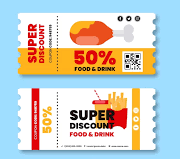Each day the pandemic is bringing new truth, as well as customers, are expecting quick responses in this rapid-changing climate. For preventing the spread of the infection, retailers have closed their doors, or at least reduced hours as well as foot web traffic to sustain social distancing. With physical retail links vanishing, ONLINE is where consumers are making most, if not all of their acquisitions.
This is requiring a stronger connection between the brand and the electronic experience. A brand’s online reputation is now based upon the online experience. All the typical online factors, internet site rate, shipping time, individual experience, on the internet customer assistance will now have a larger impact on brand name perception as it’s the only point of call for the time being.
As buying steps practically solely on the internet, let’s explore how customer habits have moved because of this.
- Buyers Still Relying on Their Phones in the House
We expected to see desktop computer shopping fad upwards in terms of device share since consumers go to house all the time with their desktop computers, instead of on the move with their phones. However, that’s actually not the situation. We brought up information from our own analytics system as well as found that mobile phone share has begun to climb slowly and continues to be the leading channel for interaction, while the desktop computer has stayed fairly flat. Also, as we eliminate mobile minutes from being on the go, the network still dominates. This indicates mobile excellence needs to still be a vital location of emphasis for stores.
- Buyers are Negotiating Even More Through Organic Networks
Because the pandemic started, we have seen a relatively constant increase in the variety of day-to-day transactions with natural networks. It appears that buyers are acquiring more often when they come in through these nonpaid networks.
There are likely a number of elements driving this. One could be that consumers are proactively seeking what they recognize they wish to acquire, instead of being enticed by pull promotions. This would make sense in these unsure times when customers are being more conventional in their costs. One more aspect can be that items in high demand run out of stock everywhere, driving individuals to actively look for them by means of new networks.












Comments